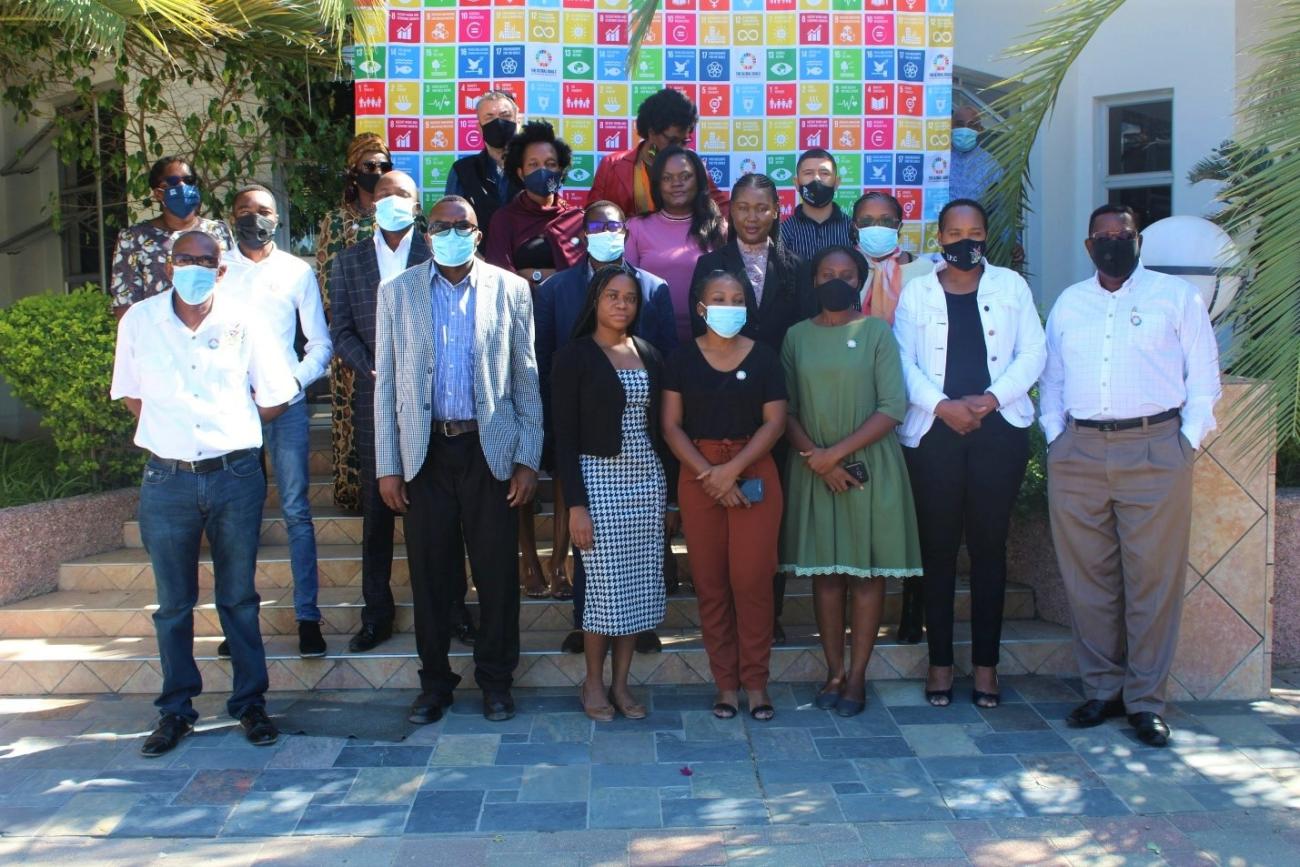Participants in a two-day capacity-building workshop taking place in Otjiwarongo heard that science, technology and innovation is a key driver for the achievement of the Sustainable Development Goals (SDGs). Officials of the National Planning Commission (NPC), with the support of United Nations Department of Economic and Social Affairs (UNDESA), UN Namibia, and GIZ Namibia took part in a training workshop on Improving Service Delivery through Effective Public Policy Making for STI. The aim of the workshop is to build the capacity of participants to formulate sound and effective policies that contribute to the achievement of Namibia’s development priorities and the SDGs. Focusing on STI, it is the first of a series of mini-workshops covering various aspects of the policy development and monitoring and review. These activities form part of UN system support to accelerate the achievement of the SDGs in Namibia.
Namibia is known to be one of the countries with best polices in the world, however, there are still some notable challenges
Speaking on behalf of the Executive Director of the NPC, Ms. Habani Munyungano, Deputy Chief, National Development Advise, NPC, noted that: “Namibia is known to be one of the countries with best polices in the world, however, there are still some notable challenges …The consistency in the development/revision of such public policies and their effectiveness is critical in achieving the country’s developmental aspirations, as stated in the current developmental plan under implementation, including National Development Plan 5 (NDP5), Harambee Prosperity Plan (HPP II) and other national, regional and international frameworks such as Sustainable Development Goals (SDGs) and AU Agenda 2063.”
The COVID-19 pandemic has further underlined the multiple importance of STI, from basic research on vaccines, rapid development of technologies
In his statement, Mr. Sen Pang, the UN Resident Coordinator stated that: “STI is one of the Means of Implementation (MOI) of the SDGs, for mainstreaming and acceleration…The COVID-19 pandemic has further underlined the multiple importance of STI, from basic research on vaccines, rapid development of technologies, to innovation in the remote delivery of e-learning, tele-health, fintech, and other services.”
This workshop links work on STI at the global and national level. Next week, from 4 to 5 May the Multi-stakeholder STI Forum will convene in New York, under the theme of Science, technology and innovation for a sustainable and resilient COVID-19 recovery, and effective pathways of inclusive action towards the Sustainable Development Goals.
Namibia is strongly committed to the achievement of the SDGs and will be presenting her second Voluntary National Review (VNR) in July 2021 at the High-Level Political Forum. It is conducting a second VNR, to assess and review progress on implementation. Namibia’s newly developed draft Guidelines to the structure of Public Policies Documents and the Guidelines for the structure of Public Policies Making Process were also reviewed at the workshop.
The workshop brought global expertise and perspectives to strengthen STI policies in Namibia. Expert resource persons at the workshop included Officials from the Ministry of Higher Education, Technology and Innovation (MHETI); the CSIR-Science & Technology Policy Research Institute in Ghana; the Southern African Institute for the Environmental Assessment (SAIEA); Environment and Development Services (EDS) – International; the United Nations Educational, Scientific and Cultural Organization (UNESCO); United Nations Economic Commission for Africa (UNECA).
For additional information, contact:
- Mr. Sylvanus Nambala, Chief National Development Advisor—NPC (SNambala@npc.gov.na)
- Mr. Fred Soltau, Senior Sustainable Development Officer—UNDESA (soltau@un.org)
- Ms. Eunice Ajambo, Economist & Development Coordination Officer—UN Namibia (ajambo@un.org)






